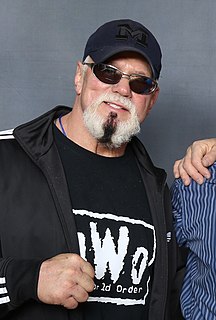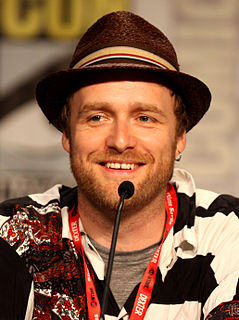A Quote by Christopher Titus
So it seems that because of every syndrome and disorder we've invented in the past twenty years, the Los Angeles Times reported that 63% of American families are now considered dysfunctional. My God! That means we're the majority. We're normal! It's the people who have the mommy, the daddy, the brother, the sister, the little white picket fence - those people are the freaks, man!
Related Quotes
The Los Angeles Times reported that sixty-three percent of American families are now considered dysfunctional. Good. 'Cause that means when Armageddon really happens, thirty-seven percent of this population is going to lose their minds. Oh my God, the world is over! Us sixty-three percent? We're going to go, Hey... there's no one watching the Lexus dealership! We're going to the Apocalypse with leather and a CD changer! You guys have been great. Thank you.
I think now you see a lot more British films from the perspective of, I guess what would be considered "new" British people - people of color, Asian people. I think that's what's happening now, whereas 20 years ago it couldn't happen because it was still predominantly, "British film is about middle-class white families and what they do."
I had been at the newspaper for a few months. It wasn’t regarded as the paper, it was their paper. There was a sense of community because they reported, we reported, I reported the little things, the whist drives, the weddings, the funerals, the little speeches. In one sense it was the most boring copy in the world to anyone picking it up, but, on the other hand, it was crucial to the people who lived in those communities.
Savant syndrome is not a disorder in the same way as autism is a disorder or dementia is a disorder. Savant syndrome are some conditions that are superimposed and grafted on to some underlying disability. So savant syndrome is not a disease or disorder in and of itself. It is a collection of characteristics, or symptoms, or behaviors that have grafted on to the underlying disability.
Sprawl is the American ideal way to develop. I believe that what we're developing in Denver is in no appreciable way different than what we're doing in Los Angeles - did in Los Angeles and are still doing. But I think we have developed the Los Angeles model of city-building, and I think it is unfortunate.
































